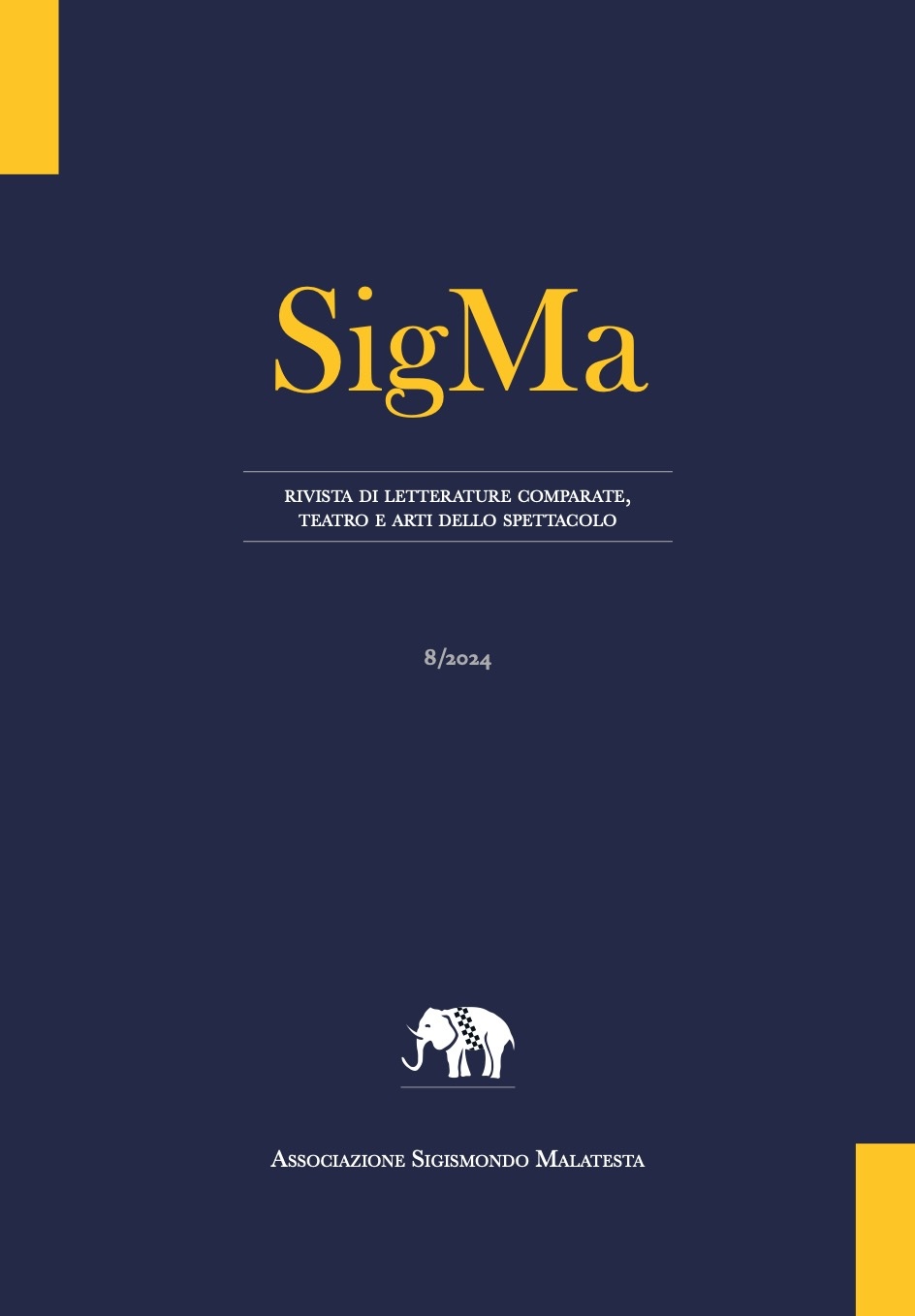Coro/Solo: una ricognizione storico-critica dal Novecento all’oggi
Abstract
Il presente contributo si propone di tracciare, secondo una prospettiva critica, l’evoluzione storica dei modi e delle forme in cui il ‘solo’ e il ‘coro’ si sono espressi nel teatro (di parola e in musica), nella danza e nella performance dal Novecento ad oggi. Il discorso storico, riorganizzato qui per temi e ambiti, mette in luce la particolare dialettica innescata in alcune stagioni sperimentali da questi due “luoghi-strumenti”, come ben li definisce Marco De Marinis, arrivando a caratterizzare specifici generi teatrali, tendenze della scena, sia moderna che contemporanea, e pratiche artistiche, sociali e di comunità. Differenti le logiche che ordinano il rapporto coro/solo fin dalle origini del teatro e della drammaturgia occidentali, per arrivare ai più radicali ripensamenti contemporanei con l’amputazione del coro tragico negli allestimenti della Socìetas Raffaello Sanzio ovvero la sua amplificazione parossistica in forma di massa nelle regie di Einer Schleef. Nella dialettica tra questi due elementi si può leggere una condizione di antitesi oppure di sintesi, di contrasto o di dialogo all’interno di una comunità tra individuo e società. È per l’appunto nel superamento del conflitto proprio del moderno tra solo e coro che riconosciamo la cifra del teatro del XXI secolo: quando cioè l’io-solo non rappresenta più soltanto una persona ma può farsi unisono nel corpo a corpo con gli altri coreuti. Come nelle pratiche corali di Marco Martinelli e di molto teatro cosiddetto ‘di comunità’, la voce di uno si moltiplica nella voce di tutti gli altri, arrivando a con-fonderla e a con-fondersi in un insieme che è il ‘noi’ politico. Il ‘noi’ di una cittadinanza in cerca di voce e di azione.
Downloads
SigMa pubblica in internet, ad accesso aperto, con licenza:
|
|
CCPL Creative Commons Attribuzione |
L'autore conserva il copyright sul suo contributo, consentendo tuttavia a chiunque "di riprodurre, distribuire, comunicare al pubblico, esporre in pubblico, rappresentare, eseguire e recitare l'opera", purché siano correttamente citati l'autore e il titolo della rivista. L’autore, al momento della proposta di pubblicazione, è inoltre tenuto a dichiarare che il contenuto e l’organizzazione dell’opera è originale e non compromette in alcun modo i diritti di terzi, né gli obblighi connessi alla salvaguardia di diritti morali ed economici di altri autori o di altri aventi diritto, sia per testi, immagini, foto, tabelle, sia per altre parti di cui il contributo può essere composto. L’autore dichiara altresì di essere a conoscenza delle sanzioni previste dal codice penale e dalle leggi speciali per l’ipotesi di falsità in atti ed uso di atti falsi, e che pertanto Reti Medievali è esente da qualsiasi responsabilità di qualsivoglia natura, civile, amministrativa o penale, e sarà dall'autore tenuta indenne da qualsiasi richiesta o rivendicazione da parte di terzi.

